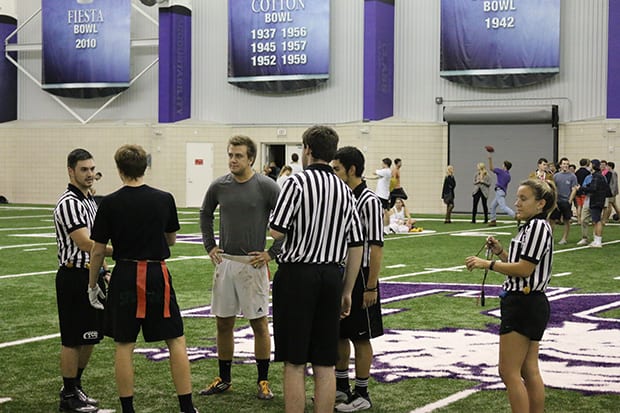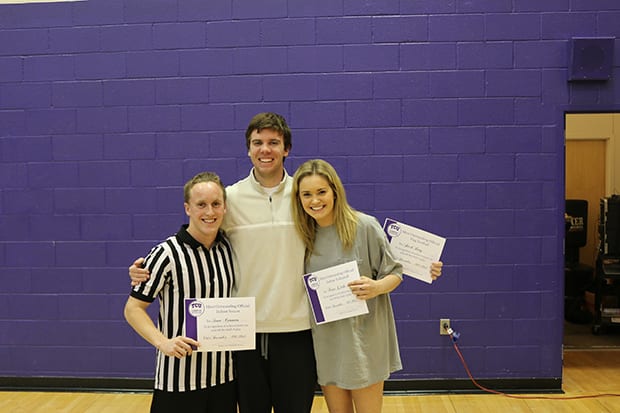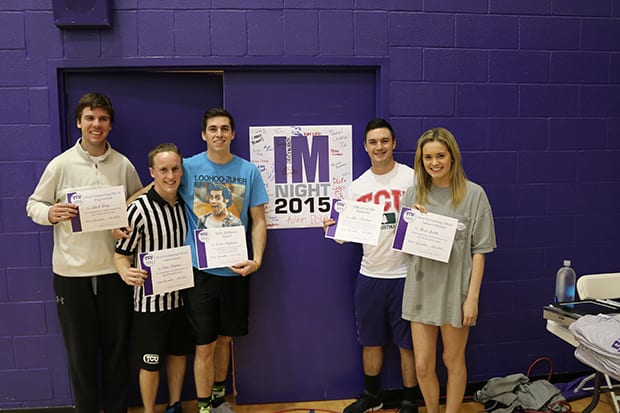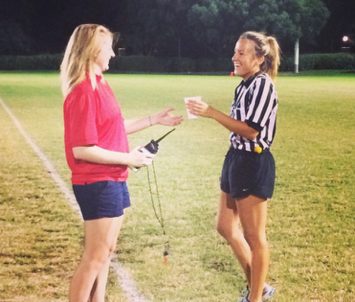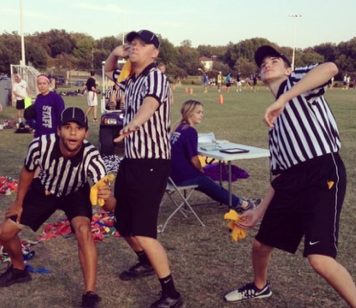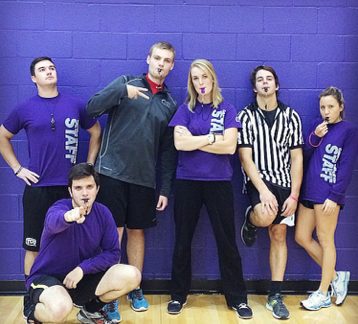Sheldon Tate takes an “atypical” approach to training participants in the intramural referee program. As the assistant director of campus recreation at Texas Christian University, Tate oversees the intramural program at the university.
The intramural referee training at TCU starts in the hiring process. From the beginning, Tate said he lets students know what they’re getting into. “This is going to be uncomfortable,” said Tate. “It’s going to be something that is going to challenge you, but ultimately it’s going to be worth it. When we sit down in the interview process, we talk about what it means to be an official and how it’s going to impact them in the short term and the long term of life.”
Step two involves a classroom setting where students are presented with rules, philosophy, position, mechanics, etc. But Tate assures this is not a typical college lecture setting. Students interact with each other and learn from viral videos.
Then, the referees-in-training take what they learn in the classroom to the courts. They are asked to go to the courts in referee attire and, without teams, go through positioning on the court and discuss how to make big calls.
Finally, step two ends with referees getting trained in practice games between intramural teams. “We take those games, we put the referees in them, and we have the ability, the teams know this going in, we will stop play if we need to. We’ll move them around sort of like interactive chess pieces,” said Tate.
But training does not end on the court. Each week, the intramural referees have meetings to discuss the experiences they had that week. They start with a question and answer section and end with a specialized curriculum Tate developed to ensure they’re still developing cognitively and focused on their future as a student, not just as a referee.
“You’ll find places that have good referees, but that’s not what we’re after here. And so that curriculum that I put them through is all about making them good people,” said Tate. “I think as a result, we see quality on the court when it comes to our officiating, our participants surely appreciate that, and then ultimately, our retention rate is through the roof with our staff. Which is great because they’re doing well in the classroom and they’re continuing to come back and they absolutely see value in their time here. That’s sort of that atypical approach I was eluding to.”
The extensive training comes from Tate’s own experiences working in campus recreation as a student. When he started working in campus rec, Tate said he did not know what he wanted to do after school. But because someone believed in him enough to reach his full potential, he wants to do the same for the students at TCU.
Between the training, one-on-one meetings with intramural referees and weekly staff meetings, that should be the goal of every professional working in campus recreation, according to Tate. “What should be in that person’s mentality, when he or she begins a path as a program director, is that it really isn’t about you at all. It’s great that you’re able to actualize a dream that you might have, but you’re not offered a job because of who you are per se, but it’s because of what you’re going to be able to do for those students,” he said.




